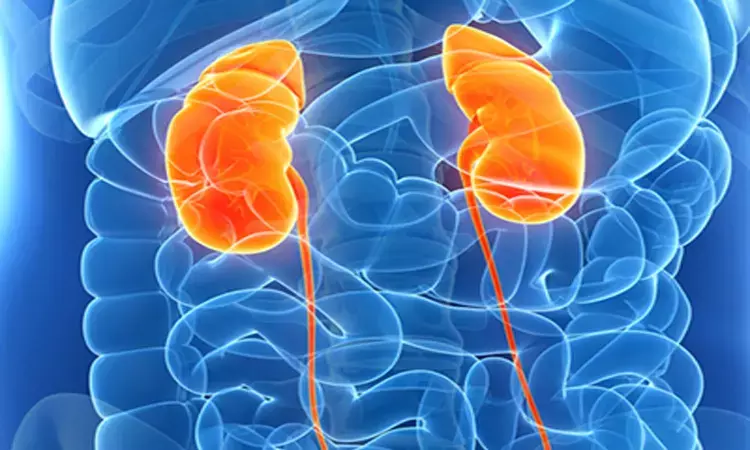- Home
- Medical news & Guidelines
- Anesthesiology
- Cardiology and CTVS
- Critical Care
- Dentistry
- Dermatology
- Diabetes and Endocrinology
- ENT
- Gastroenterology
- Medicine
- Nephrology
- Neurology
- Obstretics-Gynaecology
- Oncology
- Ophthalmology
- Orthopaedics
- Pediatrics-Neonatology
- Psychiatry
- Pulmonology
- Radiology
- Surgery
- Urology
- Laboratory Medicine
- Diet
- Nursing
- Paramedical
- Physiotherapy
- Health news
- Fact Check
- Bone Health Fact Check
- Brain Health Fact Check
- Cancer Related Fact Check
- Child Care Fact Check
- Dental and oral health fact check
- Diabetes and metabolic health fact check
- Diet and Nutrition Fact Check
- Eye and ENT Care Fact Check
- Fitness fact check
- Gut health fact check
- Heart health fact check
- Kidney health fact check
- Medical education fact check
- Men's health fact check
- Respiratory fact check
- Skin and hair care fact check
- Vaccine and Immunization fact check
- Women's health fact check
- AYUSH
- State News
- Andaman and Nicobar Islands
- Andhra Pradesh
- Arunachal Pradesh
- Assam
- Bihar
- Chandigarh
- Chattisgarh
- Dadra and Nagar Haveli
- Daman and Diu
- Delhi
- Goa
- Gujarat
- Haryana
- Himachal Pradesh
- Jammu & Kashmir
- Jharkhand
- Karnataka
- Kerala
- Ladakh
- Lakshadweep
- Madhya Pradesh
- Maharashtra
- Manipur
- Meghalaya
- Mizoram
- Nagaland
- Odisha
- Puducherry
- Punjab
- Rajasthan
- Sikkim
- Tamil Nadu
- Telangana
- Tripura
- Uttar Pradesh
- Uttrakhand
- West Bengal
- Medical Education
- Industry
Lithium use in elderly tied to significant decline of renal function, finds study

Canada: Lithium use over valproate significantly increases the risk of renal decline in older adults, according to a recent study published in the Journal of Clinical Psychiatry.
Lithium is used as a treatment for mood disorder however renal risks associated with its use in older adults are unknown. Soham Rej, at the department of psychiatry at McGill University in Canada, and colleagues determined whether lithium was associated with increased risk of renal decline compared to valproate and whether his association differs with higher vs lower baseline serum lithium concentrations.
The researchers conducted a population-based cohort study using linked health care databases (Ontario, Canada). The cohort consisted of older adults (mean age 71 years) accrued 2007–2015; 3,113 lithium users were propensity-score matched 1:1 to 3,113 valproate users. They then further examined users with higher (> 0.7 mmol/L) or lower concentrations of serum lithium.
The primary outcome was ≥ a 30% loss in estimated glomerular filtration rate from baseline.
Key findings of the study include:
- Matched lithium users and valproate users demonstrated similar indicators of baseline health over a median (maximum) follow-up of 3.1 (8.3) years.
- Lithium was associated with increased risk of renal function loss compared to valproate (674/3,113 [21.7%] vs 584/3,113 [18.8%]; 6.5 vs 5.7 events per 100 person years; hazard ratio = 1.14).
- When baseline serum lithium concentrations were > 0.7 mmol/L, the risk of renal decline compared to valproate use was 1.26; when baseline lithium concentrations were ≤ 0.7 mmol/L, the risk was 1.06.
"In older adults, lithium use is associated with a statistically significant increased risk of renal decline compared to valproate use, although the decline is less than previously reported. Further studies should confirm whether this effect is primarily in patients with higher serum lithium concentrations," concluded the authors.
The study, "Association of Lithium Use and a Higher Serum Concentration of Lithium With the Risk of Declining Renal Function in Older Adults: A Population-Based Cohort Study," is published in the Journal of Clinical Psychiatry.
Dr Kamal Kant Kohli-MBBS, DTCD- a chest specialist with more than 30 years of practice and a flair for writing clinical articles, Dr Kamal Kant Kohli joined Medical Dialogues as a Chief Editor of Medical News. Besides writing articles, as an editor, he proofreads and verifies all the medical content published on Medical Dialogues including those coming from journals, studies,medical conferences,guidelines etc. Email: drkohli@medicaldialogues.in. Contact no. 011-43720751


